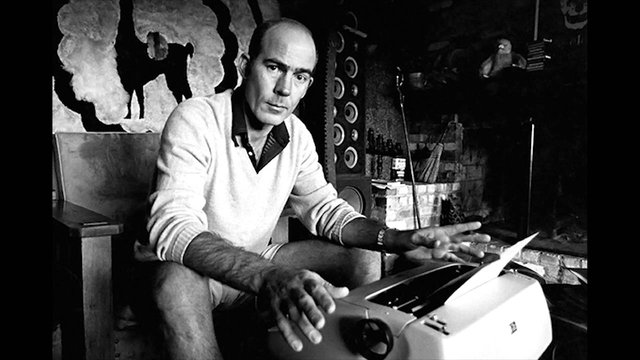Toolbox: Escritura creativa/creative writing 2 (experimento formal/formal experiment)
.jpg)
A comienzos del siglo XX, un grupo de jóvenes rusos fundaron la teoría literaria. Es decir, elevaron el estudio de la literatura a la altura de una ciencia. Para poder hacer esto fue necesario descubrir qué era la literatura o, mejor dicho, qué era "lo literario" o la "literariedad". Para responder a esta pregunta, Viktor Shklovski publica, en 1917, "El arte como artificio", un texto dedicado exclusivamente a definir la diferencia entre el lenguaje literario y el que usamos cotidianamente. En ese artículo Shklovski descubre una cosa: la literatura nos presenta el mundo como algo nuevo, incluso las cosas a las que estábamos acostumbrados cobran una nueva dimensión. A ese fenómeno linguístico de la literatura Shklovski lo llamó "extrañamiento" u "ostranenie" (en ruso). Esto quiere decir que los escritores, a través de determinados recursos semánticos, sintácticos y morfológicos, producen en nosotros un efecto de extrañeza que nos obliga a tomar consciencia de cosas que, en la vida cotidiana, pasamos por alto. La literatura es, en pocas palabras, un uso reflexivo de la lengua que se diferencia de la comunicación porque, lejos de insertarnos en un mundo ya construido y estático, nos obliga a repensar y recrear la experiencia como si fuera la primera vez que vivimos o percibimos algo. La literatura es, entonces, una forma de desautomatizar nuestra percepción.
Por esta razón, les propongo la siguiente consigna de escritura:
Consigna de escritura: Describir un objeto de forma tan detallada que no se sepa qué es.
Utilidad: Nos permite darnos cuenta de dos cosas: 1-La materia, atravesada por el lenguaje, se vuelve infinita. 2- La necesidad de ejercitar una nueva mirada cada vez que intentamos describir un objeto o situación.
At the beginning of the 20th century, a group of young Russians founded literary theory. That is, they raised the study of literature to the height of a science. In order to do this it was necessary to discover what literature was, or rather, what was "literary" or "literary". To answer this question, Viktor Shklovski publishes, in 1917, "Art as Artifice", a text dedicated exclusively to defining the difference between literary language and that which we use on a daily basis. In that article Shklovski discovers one thing: Literature presents the world to us as something new, even the things to which we are accustomed charge a new dimension. To that linguistic phenomenon of literature Shklovski called it "estrangement" or "ostranenie" (in Russian). This means that writers, through certain semantic, syntactic and morphological resources, produce in us an effect of strangeness that forces us to become aware of things that, in everyday life, we ignore. Literature is, in a few words, a reflective use of language that differs from communication because, far from inserting ourselves into a world that is already built and static, it forces us to rethink and recreate the experience as if it were the first time we lived or we perceive something. Literature is, then, a way to de-automatize our perception.
For this reason, I propose the following writing instruction:
Writing instruction: Describe an object so detailed that it is not known what it is.
Utility: It allows us to realize two things: 1-Matter, traversed by language, becomes infinite. 2- The need to exercise a new look every time we try to describe an object or situation.